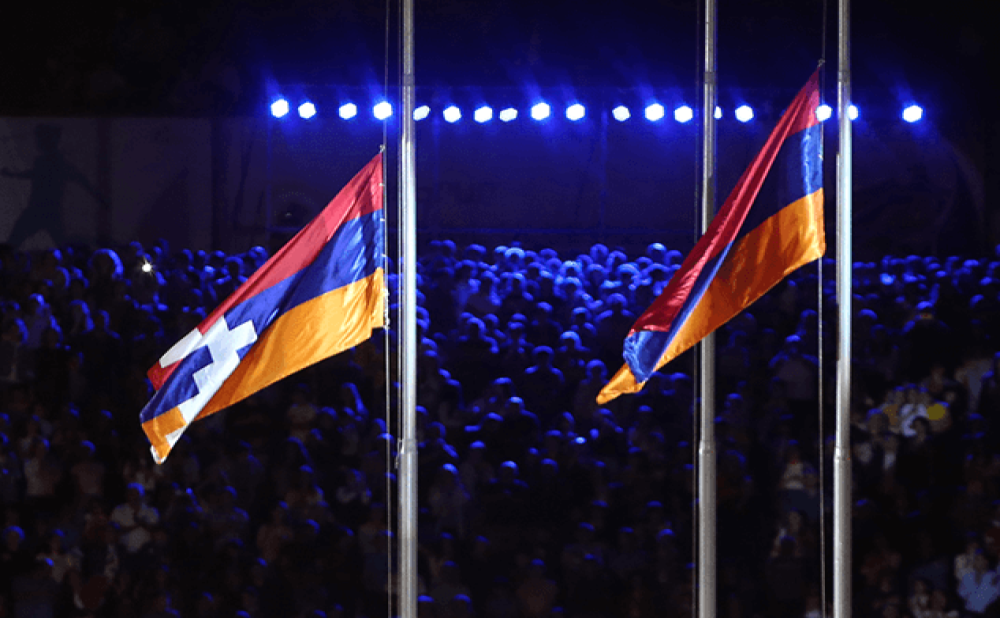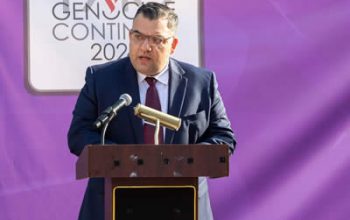Armenians are closing the chapter on another nightmarish year marked by further territorial concessions and escalating fears of even greater losses. While the looming threat of war persisted, the Azerbaijani-Turkish alliance found that even minimal pressure on the Armenian government sufficed to extract new concessions. Meanwhile, external forces and geopolitical dynamics played a role in maintaining a fragile stability.
Throughout this period, the Armenian government, sidelined from significant political processes both at home and abroad, resorted to pleading for peace—even with Turkey. This desperate strategy was sold to a dwindling base of believers under the illusion that a “peace treaty” would deliver lasting stability. However, history has repeatedly shown that Azerbaijan disregards treaties and agreements whenever it suits its goals, employing intrigue, deception, and force.
Since 2018, Armenia has plummeted from a position of military and political advantage to one of defeat and retreat under Nikol Pashinyan’s leadership. Azerbaijan’s gains have been directly tied to Pashinyan’s failures, concessions, and readiness to retreat further.
One need only examine the demands of Azerbaijan in 2018 compared to today to see the extent of Armenia’s decline. Even after the predictable defeat in 2020, Azerbaijan could not have imagined the complete occupation of Artsakh and the expulsion of its population. At that time, Azerbaijan sought reciprocal arrangements such as a “Zangezur corridor” in exchange for the Lachin corridor. Yet Pashinyan’s diplomatic failures, combined with his apparent willingness to concede Artsakh, emboldened Azerbaijan to pursue even more aggressive goals.
What seemed unthinkable then—Artsakh under siege, occupied, and its population expelled—has become reality. The Azerbaijani military has breached Armenia’s borders, seizing strategic positions while the Armenian government remains passive. Worse, the government has tolerated and even justified these genocidal actions, while openly defending Turkish involvement in the aggression, as well as Pakistan’s and Israel’s support during the 44-day war.
Pashinyan’s recognition of Artsakh as part of Azerbaijan provided the ultimate pretext for Azerbaijani aggression. This legitimized not only the siege and new war but also the depopulation of Artsakh. Even after Azerbaijan’s September 18, 2023 attack, when Artsakh Armenians faced the genocidal choice of extermination or forced emigration, Pashinyan shockingly declared that their physical existence was not threatened. Such statements seem more aligned with the enemy’s interests than those of the Armenian people.
The Armenian government’s inaction extended to yielding the nation’s most defensible borders to the enemy. Despite no agreed-upon border demarcation, the government allowed Azerbaijani forces to occupy settlements and strategic roads, solidifying their presence. These actions underscore a betrayal of national sovereignty, as Pashinyan’s administration prioritizes submission over resistance.
Even as Azerbaijan brazenly declares Armenian territories as part of its own, the Armenian government remains silent or worse—offers tacit validation. Equating Azerbaijan’s falsified claims with the historical memory of Western Armenia, Pashinyan’s administration justifies enemy demands, from constitutional amendments to closing the nuclear power plant, abandoning international complaints, and dissolving the OSCE Minsk Group. These concessions are an alarming capitulation to Turkish-Azerbaijani ambitions.
In a stark parallel, Pashinyan once cited the resignation of Georgia’s president after territorial losses as an honorable precedent. Yet today, having presided over Armenia’s territorial collapse and the destruction of its army, Pashinyan clings to power, focused on personal leisure and snap elections while the nation crumbles. The government’s priority is maintaining control, leaving external forces to dictate Armenia’s fate.
Under Pashinyan, Armenia has alienated long-standing allies, jeopardizing trade, energy supplies, and vital economic ties. The push to exit the Eurasian Economic Union and other alliances betrays the interests of the Armenian people, aligning instead with foreign agendas that seek to weaken Armenia and strengthen Turkish-Azerbaijani dominance.
This reckless policy serves external powers at the cost of Armenia’s sovereignty and survival. The government appears willing to dismantle the nation to retain its grip on power, knowing full well the crimes it has committed against the state. However, global shifts in political dynamics may soon challenge this corrupt leadership.
As Armenians face the uncertainty of 2025, the question remains whether national forces can rise to the challenge of saving the country. Vahan Hovhannisyan once warned that unchecked decline could reach a “point of no return.” It is now up to the Armenian people to reject Pashinyan’s destructive policies, embrace collective responsibility, and demand a transformative program to rebuild the nation.
Victory will not come easily or quickly, but with determination and faith in our strength, Armenians can reclaim their homeland and future. Let 2025 be the year of decisive action and renewal.
Translated from Armenian and Edited by Oragark from “Droshak”




